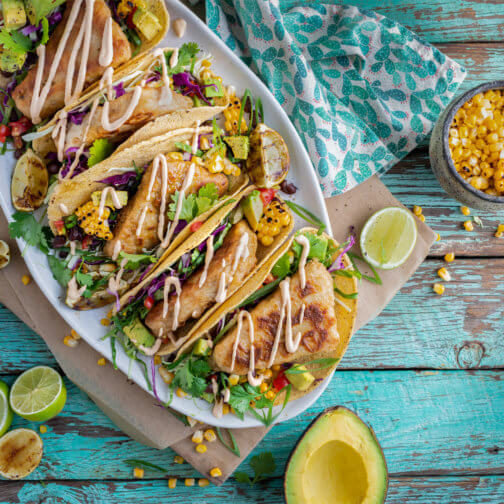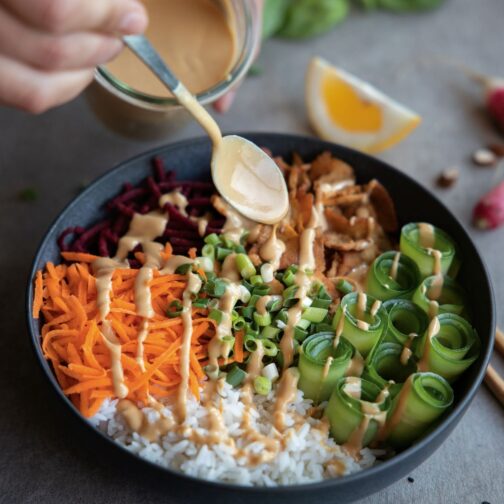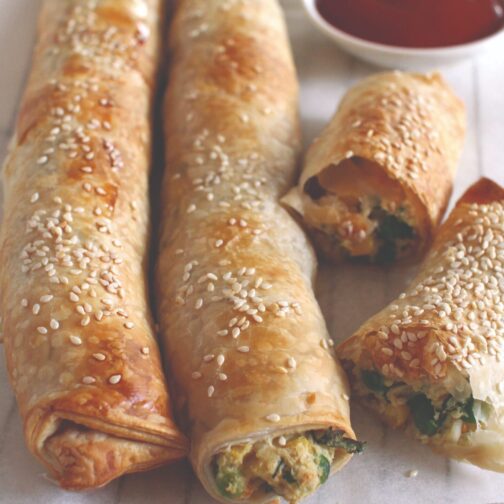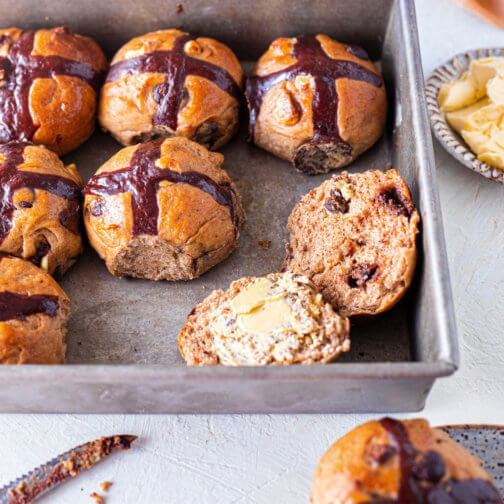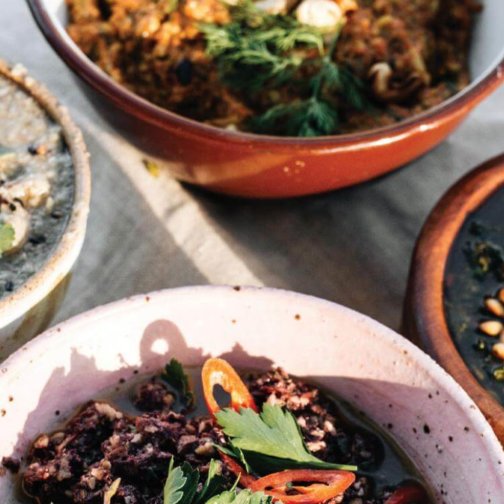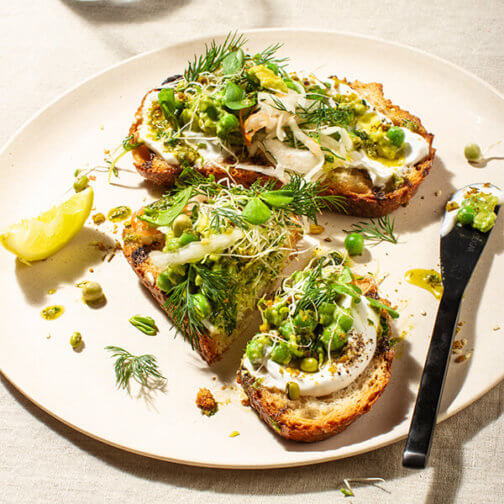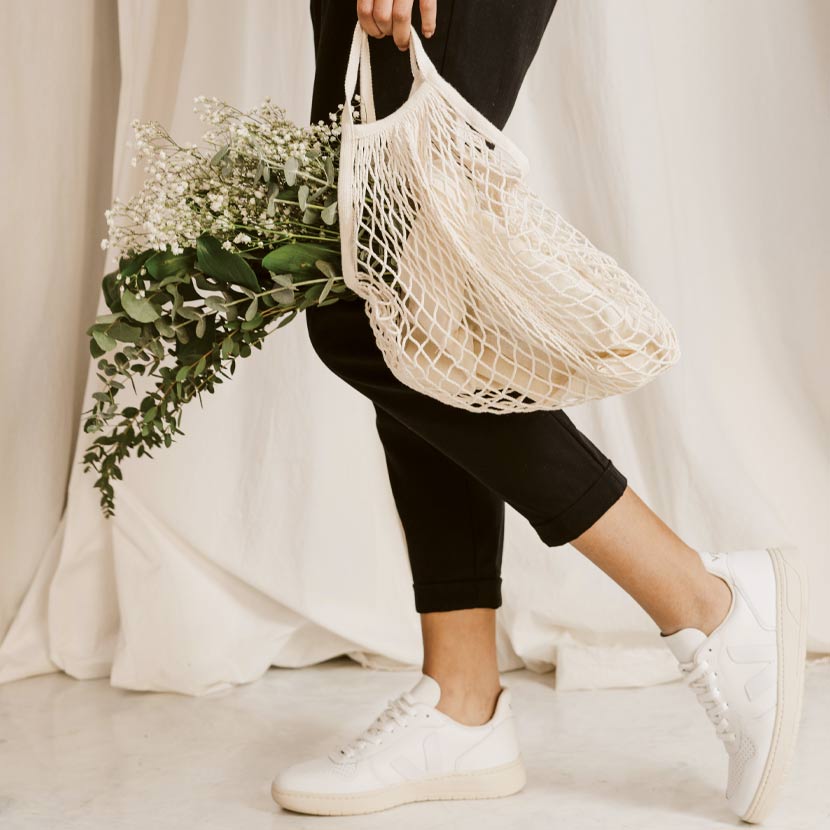
Time for an eco spring clean? Here are seven simple swaps for the conscious consumer
There’s something about that first glimmer of spring that sparks a desire for fresh, new beginnings. While for many of us this includes a spring clean of our home, the changing of seasons is also a great time to spruce up our habits and elevate our eco cred.
#1 DITCH THE DISPOSABLES
Plastic is decidedly uncool. Disposable dishcloths, sponges, and paper towels have a high turnover in most kitchens, and many conventional options are made with plastics that end up in landfill. Luckily, there are plenty of high-quality alternatives that are far superior – many can even be composted when ready to be replaced. Choose sponges made from cellulose (a plant fibre), coconut fibre scourers, and brushes made from biodegradable materials, such as bamboo with sisal bristles.
If you want to get even more savvy, use biodegradable bin liners, swap baking paper for silicone mats, and ditch plastic wrap for reusable bowl covers and wax wraps. Of course, plenty of plastic enters your home as packaging, too. You can get around this by shopping for cleaners and detergents at bulk and health food stores, where products can be poured into refillable jars. Otherwise, look for compostable, biodegradable, or recyclable packaging wherever possible.
#2 NON-TOXIC ONLY PLEASE
Steer clear of toxic cleaners and detergents. These are made with nasty chemicals that not only affect our health, but also end up in our waterways. Natural, plant-based formulas are much gentler on us and the environment. Many conventional cleaning products can even be replaced with completely natural alternatives that are already in your pantry. Try white vinegar for eliminating bacteria and mildew, lemon juice to break down soap scum, and bicarb soda as an efficient all-round cleaner.
Keep your home smelling garden-fresh without the chemical cloud, too. Many synthetic air fresheners contain harmful pollutants that can trigger headaches and asthma. For a healthy alternative, stock up on essential oils such as tea tree, lime, orange, and peppermint. Simply combine the oil with distilled water in a glass spray bottle, shake before use, and spritz on carpet, furniture, and anywhere else you’d like a clean, revitalising scent.
#3 HACK THE PACK(AGING)
The way we shop for groceries often dictates the amount of single-use plastic that comes into our homes. Choosing bulk buy stores over supermarkets is a simple way to reduce packaging waste. Just remember to take your glass jars and a sturdy canvas bag! When you’re not filling your own carefully curated jars, choose wisely in the aisles by opting for glass over plastic wherever possible, avoiding squeeze-top bottles when there are better alternatives.
In the produce section, say ‘no way’ to sliced fruit, pre-peeled garlic cloves, and other items that have been packaged up on plastic-wrapped trays. After all, most fruits and vegetables come in their own natural packaging. If you’re already cooking most of your meals at home, why not expand your repertoire to include hummus, sauerkraut, crackers, or pesto? A noticeable payoff for eliminating packaging from premade goods is the fresh, delicious, and nourishing homemade snacks you’ll always have on hand.
#4 LIGHTEN UP ON LANDFILL
You’ll earn your stripes as a true eco-warrior if you swap the kitchen bin for a compost bin. Composting is an effective way to manage household waste, not to mention a rewarding home project. The many small, odourless bin-style options mean you don’t need a backyard or even garden skills to get started. Once your food scraps and other compostable rubbish breaks down, you can supercharge your own plants with the soil or offer it to a friend, a local school, or a community garden. Rethinking the way you buy, cook, and store your food can also dramatically reduce the amount that gets thrown in the bin.
Plan meals and write a shopping list so there’s less chance of ending up with excess. Also, try keeping dry goods in airtight containers and get fussy about rotating older ingredients to the front of your fridge and pantry – you might be surprised by the difference this makes to food spoilage.
#5 BYO WHEN ON THE GO
Taking a tote bag or market basket every time you head to the shops, along with a reusable water bottle, might be the most impactful way to reduce single-use plastic. According to Planet Ark, Australians use around four billion new plastic bags every year – or 10 million a day – with an estimated 50 million of these ending up in our waterways and oceans. If you’re a coffee drinker, a reusable cup is also a must – it’s estimated we throw out one billion disposable coffee cups every year, many of which are lined with plastic that doesn’t break down. Takeaway food options tend to come with loads of plastic packaging, so try adding reusable utensils, including a straw, to your collection of eco must-haves.
“Taking a tote bag or market basket every time you head to the shops, along with a reusable water bottle, might be the most impactful way to reduce single-use plastic.”
#6 PLASTIC-FREE PERIODS
The average woman uses 12,000 tampons in her lifetime, with most conventional menstrual products containing plastics that end up in landfill or in our oceans. Thankfully, plastic-free periods are entirely possible, and preferable, with the wide range of reusable alternatives to pads and tampons now available. These include period underwear, which can be popped in the washing machine, and long-lasting silicone menstrual cups.
As well as avoiding waste, another reason to go with reusables is the impact some feminine hygiene products can have on your health. We avoid food that has been sprayed with chemicals, so why wouldn’t we give our menstrual products the same consideration? Many conventional tampons are made with pesticide-sprayed cotton, as well as plastics such as polyester and polypropylene.
Therefore, the next best thing to reusables are products that are free from synthetics and plastics, which are safer for our bodies and will decompose faster than conventional products.
#7 SUSTAINABLE SWAG
Vintage is in vogue! It’s worth thinking twice before purchasing that one-off dining room table or that designer dress. With a few exceptions, there isn’t much you can’t buy second hand – from fashion to household items. Some resources for preloved wares include Etsy, Collècte, and Vestiaire, where you can score everything from clothing and books to vintage linen and home décor. And don’t forget your local op shop for just about any category – you never know when you might stumble upon some cast iron cookware, a vintage rug, or your new favourite vase.
Not only will you be saving unwanted goods from ending up in landfill, but you’ll also score some unique pieces for your home and wardrobe.



